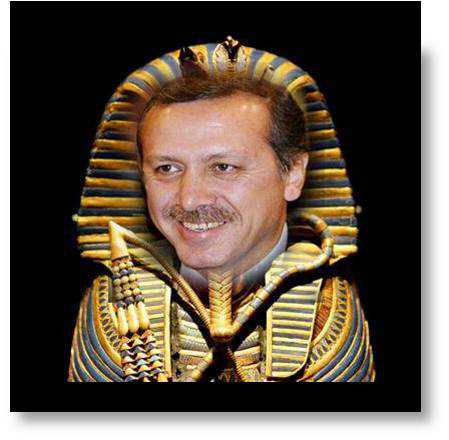By ANDREW FINKEL
ISTANBUL — A wave of early morning police raids in Turkey on Dec. 17 gave the world a sudden glimpse into the murky inner workings of the country’s ruling elite, pulling back the curtain on astonishing scenes of bribery and graft.
The head of the state-controlled financial giant, Halkbank, had $4.5 million secreted in shoe boxes in his study. Istanbul’s best-known real-estate developer was interrogated over bribes to evade zoning restrictions. The interior minister’s son’s home had so many strongboxes filled with cash, he needed a counting machine to keep the accounts straight. His father has now been forced to resign as part of major cabinet reshuffle. Another minister, Erdogan Bayraktar, who oversees the mega-construction projects that are transforming Istanbul, didn’t leave quietly. He said he’d done nothing without Prime Minister Recep Tayyip Erdogan’s full blessing. “To make people more comfortable, the prime minister should also resign,” he told a private news channel.
These remarks from a lifelong political ally were particularly damaging. Billboards throughout Turkish cities feature Mr. Erdogan staring into the distance and proclaiming that he is “on target” to lead the Republic to its centenary in 2023. Suddenly, with four former ministers in his cabinet implicated in corruption — and with newspapers suggesting that his own family may be next on the prosecutors’ list — he looks like a man staring into the bottom of a well.
The allegations of high-level corruption threaten to undo Mr. Erdogan’s accomplishment of wresting Turkish politics from the military and overseeing a long period of economic growth. Like a Moses in the wilderness, he has led his people from one sort of bondage but appears unable to deliver them to a promised land of transparent government where people are ruled through consensus rather than bullying and threats.
Mr. Erdogan does not know how to play defense. Last weekend, he addressed rally after rally and cursed the “international groups” and “dark alliances” trying to undermine Turkey’s prestige. Newspapers tied to his government named the culprits: Israel and the United States. One pro-Erdogan broadsheet demanded that the American ambassador, Francis J. Ricciardone Jr., be declared persona non grata for trying to punish Halkbank for its dealings with Iran.
While the government tries to shout down the opposition, it has done little to restore its own credibility. The compromised ministers weren’t the initial targets; rather, it was the officers involved in the investigation who lost their jobs first. A reported 400 officers have been removed from their posts or reassigned. To choke off the steady trickle of embarrassing leaks, the Interior Ministry has banned reporters from police stations. Procedures have been changed so that the police cannot assist the public prosecutor without first informing their superiors — even if it is the superior who stands accused.
Absolute power corrupting absolutely tells only part of the Turkish story. Corruption and institutionalized greed can become a powerful engine pushing a government over the edge into absolutism. It’s happening to a government that came to power 11 years ago promising to be the new broom that would sweep Turkish politics clean.
Some analysts believe that Mr. Erdogan’s Justice and Development Party (known as the A.K.P.) will lose a few percentage points in nationwide local elections this March, but that its standing is so strong that it will cling to power.
Yet this assumes that the A.K.P. has managed to plug the dam. The government is used to taking its gloves off against the radical secularists. It isn’t used to dealing with waves of dissent from within its own camp. The brutal suppression of last summer’s protests in Istanbul’s Taksim Square had already tarnished Mr. Erdogan’s image. Blaming America and the rest of the world for his troubles will only isolate Turkey further.
It is a country that needs to borrow liberally from abroad to finance its public debt. This week the Turkish lira fell to a record low against the dollar. The prospect of more political instability will make investors even more nervous.
Many commentators have framed the raids as evidence of an escalating row between Mr. Erdogan and the religious preacher Fethullah Gulen, who controls an influential network of adherents from a self-imposed exile in Pennsylvania.
It’s true that the Gulenists were natural allies of the A.K.P. when it first came to power in 2002. Zekeriya Oz, the prosecutor who initiated last week’s investigation, is the same official who launched the Ergenekon trial — a successful criminal action against the top brass for plotting a military coup (he is believed to have Gulen connections). The speculation is that many of those police officers who lost their jobs in the last 10 days had Gulen affiliations. A recent brimstone sermon webcast by Mr. Gulen fueled speculation that new revelations about A.K.P. wrongdoing are in the pipeline.
But blaming the Gulen movement is a bit like blaming Zionists. It’s a sad commentary on contemporary Turkey that people have to reach for conspiracy theories to explain why public officials are doing their job to prosecute corruption. It doesn’t seem to have crossed people’s minds that disunity within the A.K.P. coalition has given wiggle room to those who actually believe in the rule of law and want to enforce it.
Until recently, the great cliché about Turkey was that its primary political fault line lay between secularists and the religious right. But the tremors that have shaken Mr. Erdogan’s government are emanating from a fault line within the religious right itself.
The government is treating the crisis as nothing short of a coup by those jealous of its success. This is nonsense.
The opposition it faces has emerged because of the A.K.P’s own lack of respect for the rule of law and a cynical disregard for public accountability. It can no longer hide behind conspiracy theories and bluster.
Andrew Finkel is the author of “Turkey: What Everyone Needs to Know.”

